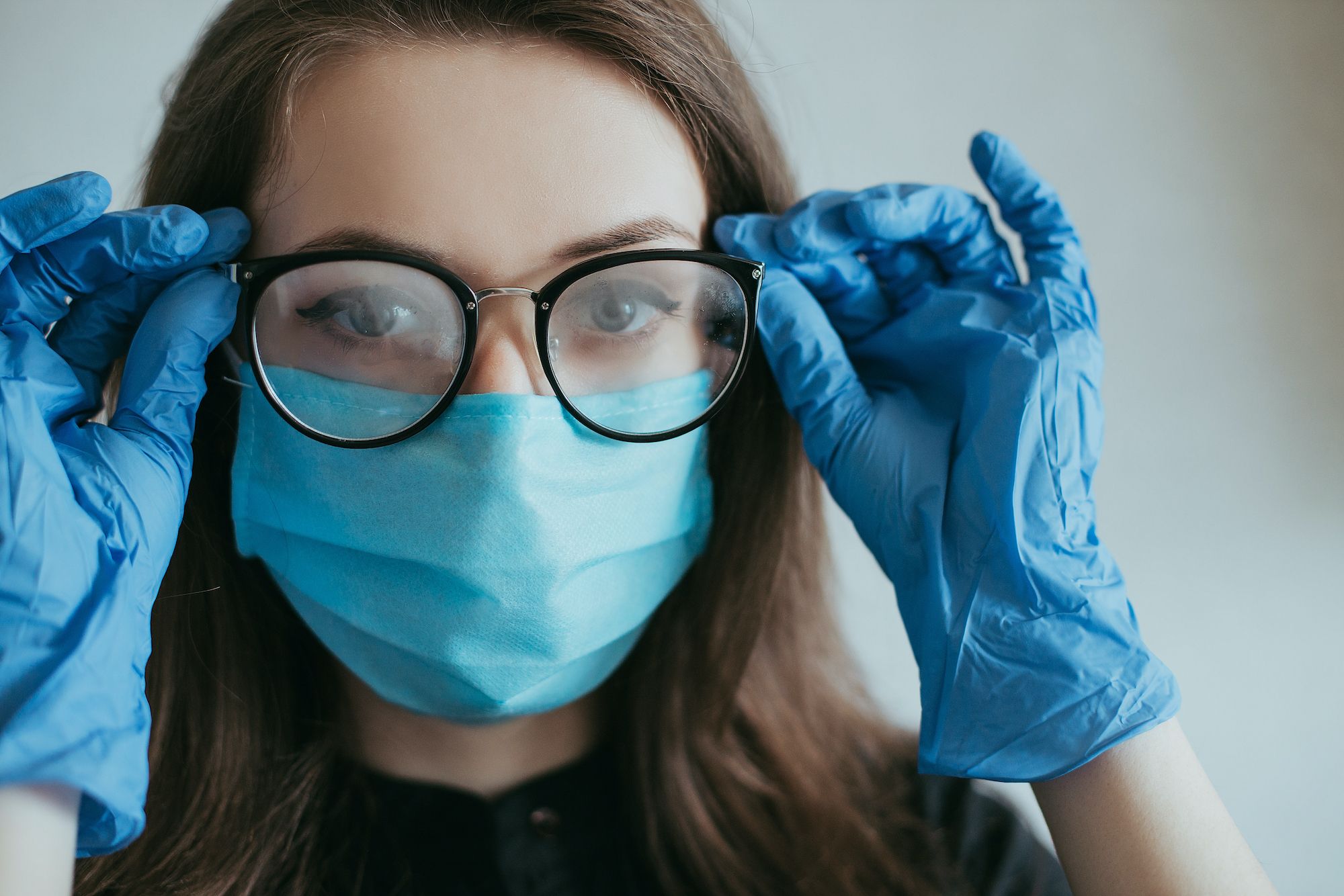Posted by: Manhattan LASIK Center

Several states across the country have mandated the use of face masks in order to prevent the spread of COVID-19. With recommendations against touching the face and eyes, people with vision problems started opting for glasses. However, these glass wearers have come face to face with an unexpected side effect: foggy glasses. Although most of us are new to the problem, this is a daily reality for healthcare workers. So we gathered some recommendations from healthcare workers and what they do to tackle the issue:
Why Do Face Masks Make Glasses Foggy?
When wearing face masks, the warm air from our mouth moves up and comes in contact with our lenses. This creates condensation on the surface of the lenses, causing them to fog up.
How Can We Stop The Fog?
There are a variety of ways we can minimize the amount of warm air escaping from the mask.
Use medical masks with bendable strips. These built-in strips can mold into the shape of your nose, minimizing the air escaping up to the glasses.
Tighten the mask. Shan Soe-Lin, a lecturer at the Yale Jackson Institute for Global Affairs says “Most of the breath should be going through the mask. If you feel the air going in or out around the mask, tighten the ties.”
Cover the top of the mask with tape. Use medical tape or an adhesive bandage to cover the top of the mask around your nose. Don’t use packing tape or duck tape although you might have these laying around in the house. These may irritate the skin.
Pull up the mask as high as you can. Pulling the mask over the nose as high as you can and using the weight of the glasses to push it down may minimize the air that escapes through the mask.
You can also try the most popular anti-fog remedy of soap and water. In 2011, two doctors from The Royal College of Surgeons of England shared the simple method of washing glasses with soapy water and shaking the excess before wearing a face mask. They said that this “leaves behind a thin surfactant film that reduces this surface tension and causes the water molecules to spread out evenly into a transparent layer”, and thus reduces the misting effect.
What If These Don’t Work?
Most glasses nowadays are treated with a special protective coating that protects against glare and smudges. However, these coatings may also resist anti-fog remedies. Therefore you may expect none of these solutions to give you satisfactory solutions. The best solution to foggy glasses is no glasses at all. In this post-COVID-19 world, Manhattan LASIK Center is committed to ensuring the safety and well-being of our patients and staff. We continue to offer convenient Virtual Consultations with one of our SMILE-LASIK consultants via video call which can be scheduled online or by phone at 212-759-9617. Give us a call and let’s discuss an individualized solution for your personal needs.
Interested in exploring the different laser vision correction options, and learning which one is the best suited to your unique needs? Call 212-759-9617 to schedule a Free Virtual Consultation with one of our SMILE-LASIK consultants, and get one more step closer to achieving clearer vision.

